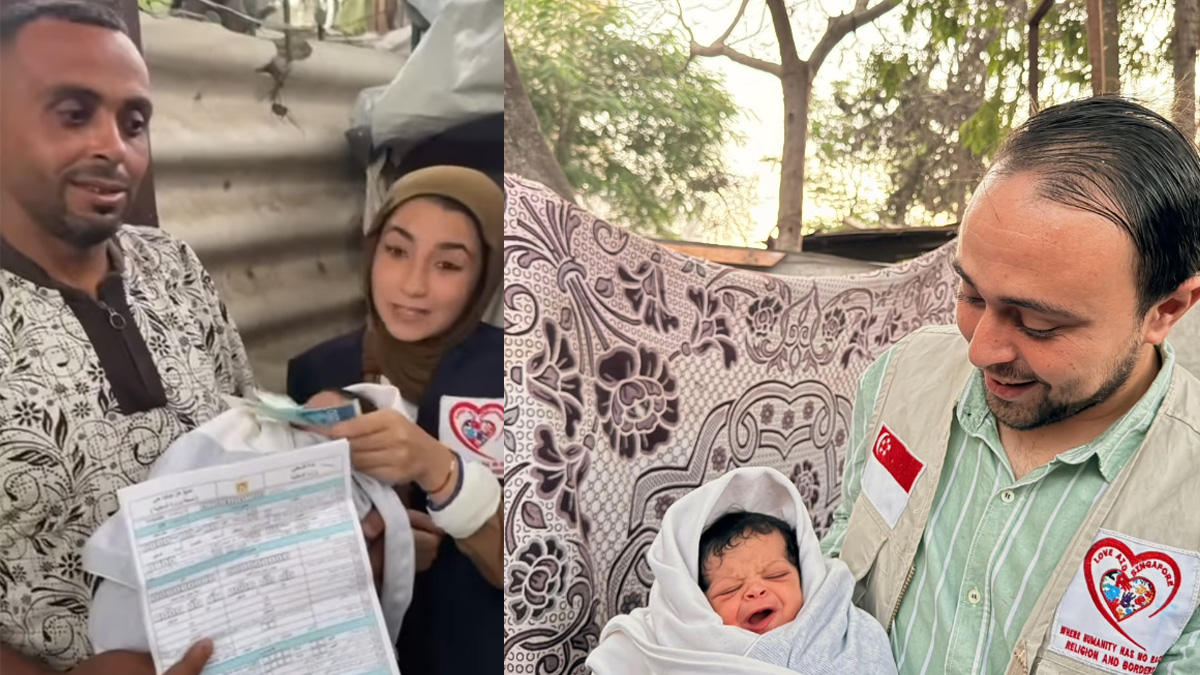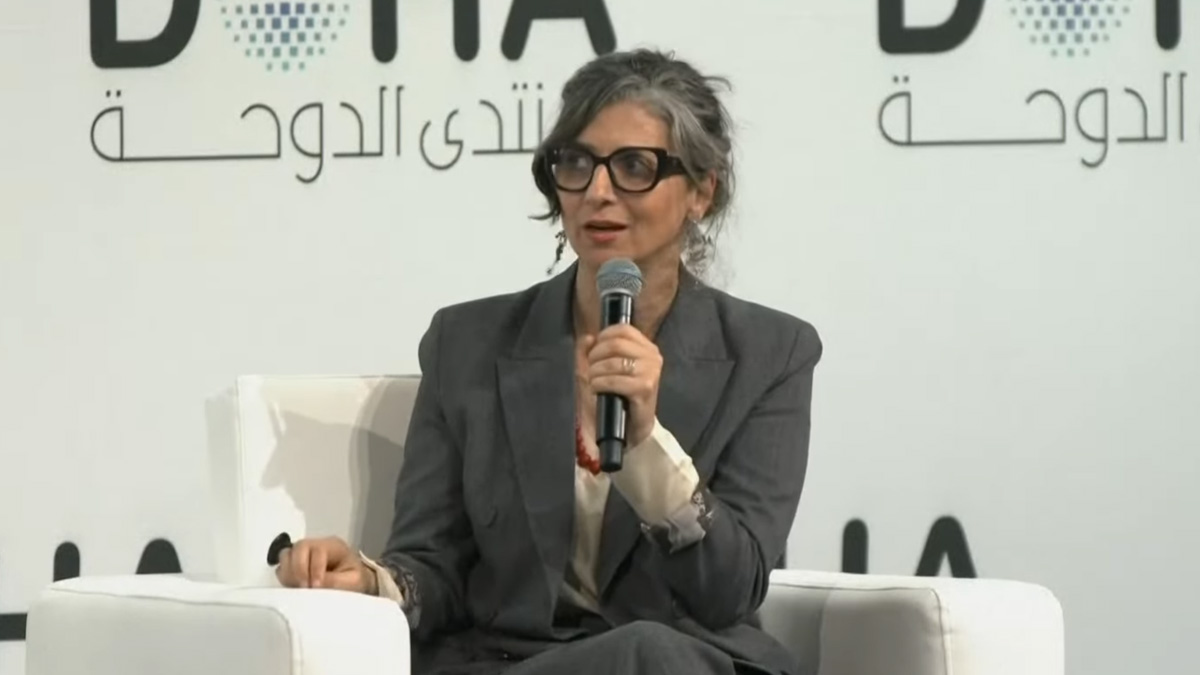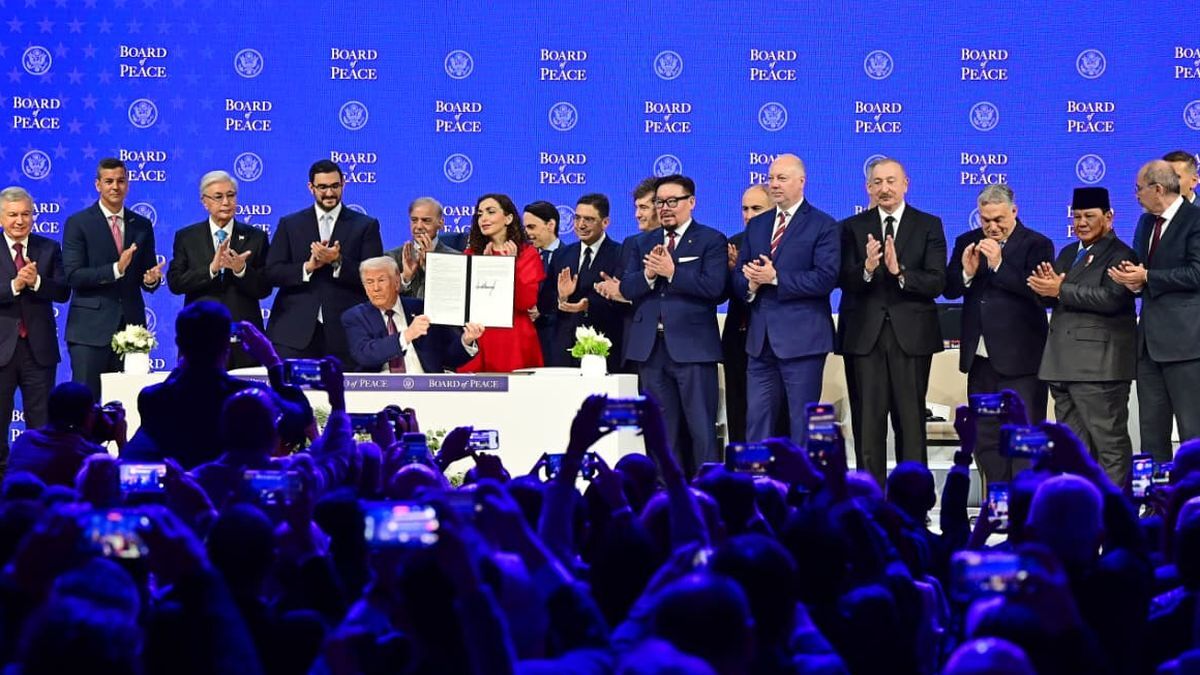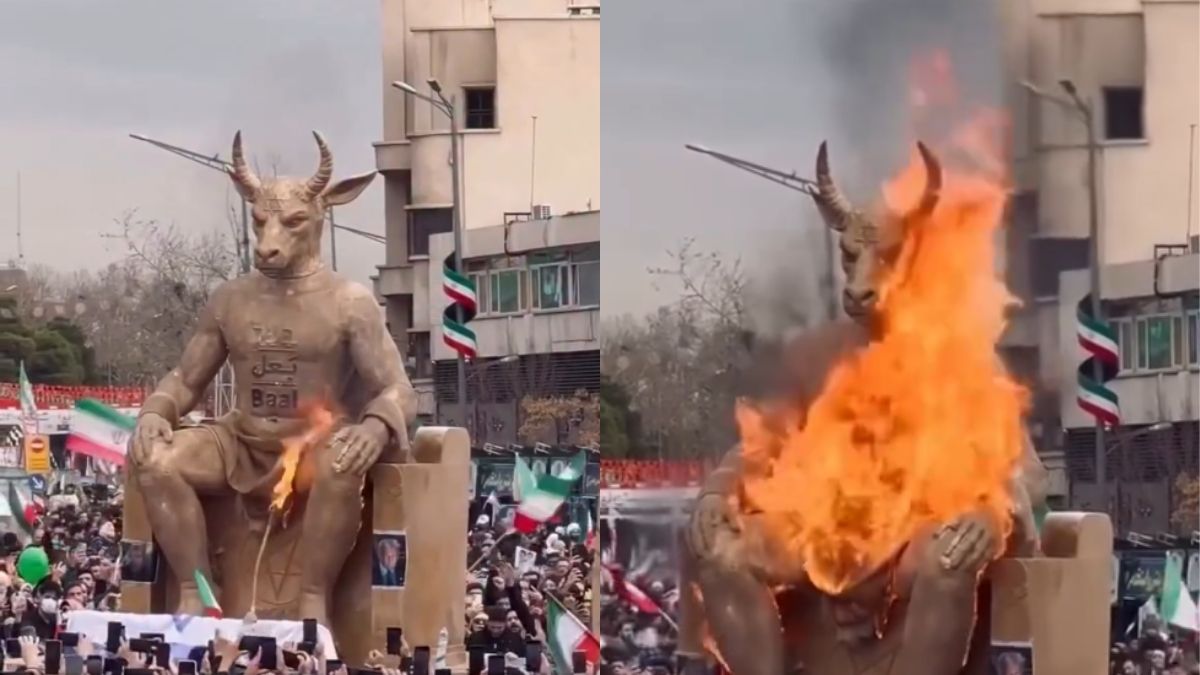Love Aid Singapore’s North Gaza polyclinic ordered to relocate south by IDF
The Israel Defense Forces (IDF) have ordered the Singapore-based humanitarian organisation Love Aid Singapore to dismantle its North Gaza polyclinic and move operations to the south. The clinic, established in July, has been serving 5,000 displaced Palestinians amid worsening health and famine conditions.
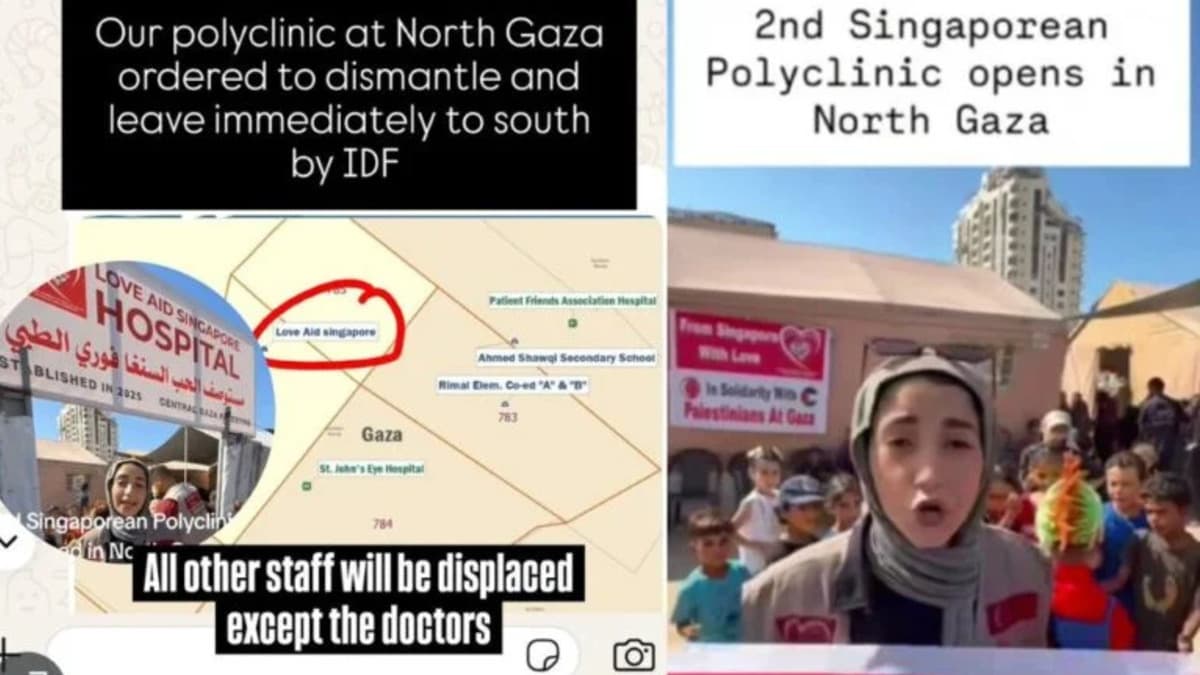
- Love Aid Singapore’s North Gaza polyclinic was ordered by the IDF to dismantle and relocate south.
- The clinic had served around 5,000 Palestinians since it began operations in July 2025.
- Gaza’s health system is collapsing, with the WHO confirming no hospitals remain functional in the north.
The Love Aid Singapore polyclinic in North Gaza has been ordered by the Israel Defense Forces (IDF) to dismantle and relocate to southern Gaza, according to founder Gilbert Goh.
The directive comes amid continuing conflict and a deepening humanitarian crisis in the enclave.
The facility, which began operations in July, has been providing medical assistance to about 5,000 Palestinians displaced by the ongoing conflict.
In an update shared on Instagram on 16 September, Goh said the order came “yesterday” from the IDF and would force the organisation to move south, where most displaced residents from the north have already fled.
“It has been operating only for two months since we took charge of the operations in July,” Goh wrote. He added that Love Aid’s Central Gaza polyclinic remains operational and continues to treat between 80 and 100 patients daily.
Goh also noted that other clinics within the combat and evacuation zones had received similar relocation orders. “There is the plan to shift the polyclinic to the south where many of the displaced have moved from the north. We will update everyone once a decision has been finalised,” he said.
According to the update, all staff except the doctors will be displaced in the relocation.
Goh appealed for support from Singaporeans, urging them to keep Love Aid’s workers in their prayers as they continue their humanitarian mission under “difficult and dangerous conditions.”
“Please pray for all our aid workers that they will be safe from harm while carrying out humanitarian work on behalf of Love Aid Singapore,” he added.
Health system on the brink
The order comes as North Gaza’s healthcare system nears total collapse. There are currently no functioning hospitals in the area following the closure of Al-Awda Hospital in May, after the Israeli military issued an evacuation directive.
World Health Organization (WHO) Director-General Dr Tedros Adhanom Ghebreyesus confirmed that Al-Awda’s closure left the North Gaza governorate without any operational hospitals.
The WHO described Gaza’s public health situation as “catastrophic,” with medical facilities operating far beyond capacity, a severe shortage of essential medicines, and an escalating death toll from malnutrition and disease.
Dr Rik Peeperkorn, the WHO Representative for the West Bank and Gaza, reported that fewer than half of Gaza’s hospitals and only 38 per cent of its primary healthcare centres remain partially functional. Even these are operating at minimal capacity due to dwindling resources.
Bed occupancy rates in the territory’s main hospitals have surged far above capacity: Shifa Hospital at 250 per cent, Nasser at 180 per cent, Al-Rantisi at 210 per cent, and Al-Ahli exceeding 300 per cent.
Dr Peeperkorn added that shortages of medicines and consumables had become critical, with 52 per cent of essential drugs and 68 per cent of medical consumables completely depleted.
Humanitarian situation worsens
The humanitarian crisis in Gaza continues to deteriorate as famine, disease, and displacement spread.
The United Nations Office for the Coordination of Humanitarian Affairs (OCHA) warned on 3 September that Israel’s continued offensive, combined with famine conditions, risked pushing civilians into “an even deeper catastrophe.”
Between 14 and 31 August, more than 82,000 new displacements were recorded, with nearly 30,000 people moving from north to south Gaza.
The UN formally declared a famine in Gaza in August, citing “systematic obstruction” of humanitarian aid over the 22 months of conflict.
According to the Integrated Food Security Phase Classification (IPC), over 514,000 people in Gaza are already enduring “catastrophic” conditions of starvation and destitution.
The number is expected to rise to 641,000 by the end of September.
Projections from the IPC suggest that conditions will deteriorate further between mid-August and late September 2025, with famine expected to spread into Deir al-Balah and Khan Younis. By June 2026, at least 132,000 children under five are forecast to suffer from acute malnutrition — double the estimate made in May 2025.
Of these, more than 41,000 are classified as severe cases, putting them at immediate risk of death.
Mounting toll of conflict
Since the escalation of hostilities on 7 October 2023, Gaza’s Health Ministry has reported nearly 65,000 Palestinians killed, including 19,424 children, and more than 165,300 others injured.
International aid organisations have warned that without immediate and sustained humanitarian access, the health and nutrition crisis will worsen sharply in the coming months.
The relocation order for Love Aid Singapore’s North Gaza facility underscores the extreme volatility of the situation faced by medical and aid workers on the ground.
With the last remaining health facilities in northern Gaza shuttered, the group’s planned move south represents both a logistical challenge and a symbol of the region’s humanitarian collapse.
Goh said the organisation would continue its operations “as long as conditions allow,” emphasising Love Aid Singapore’s commitment to serving Gaza’s civilians despite the increasing risks.
“Humanitarian aid must go on,” he wrote, “because the people have nowhere else to turn.”


